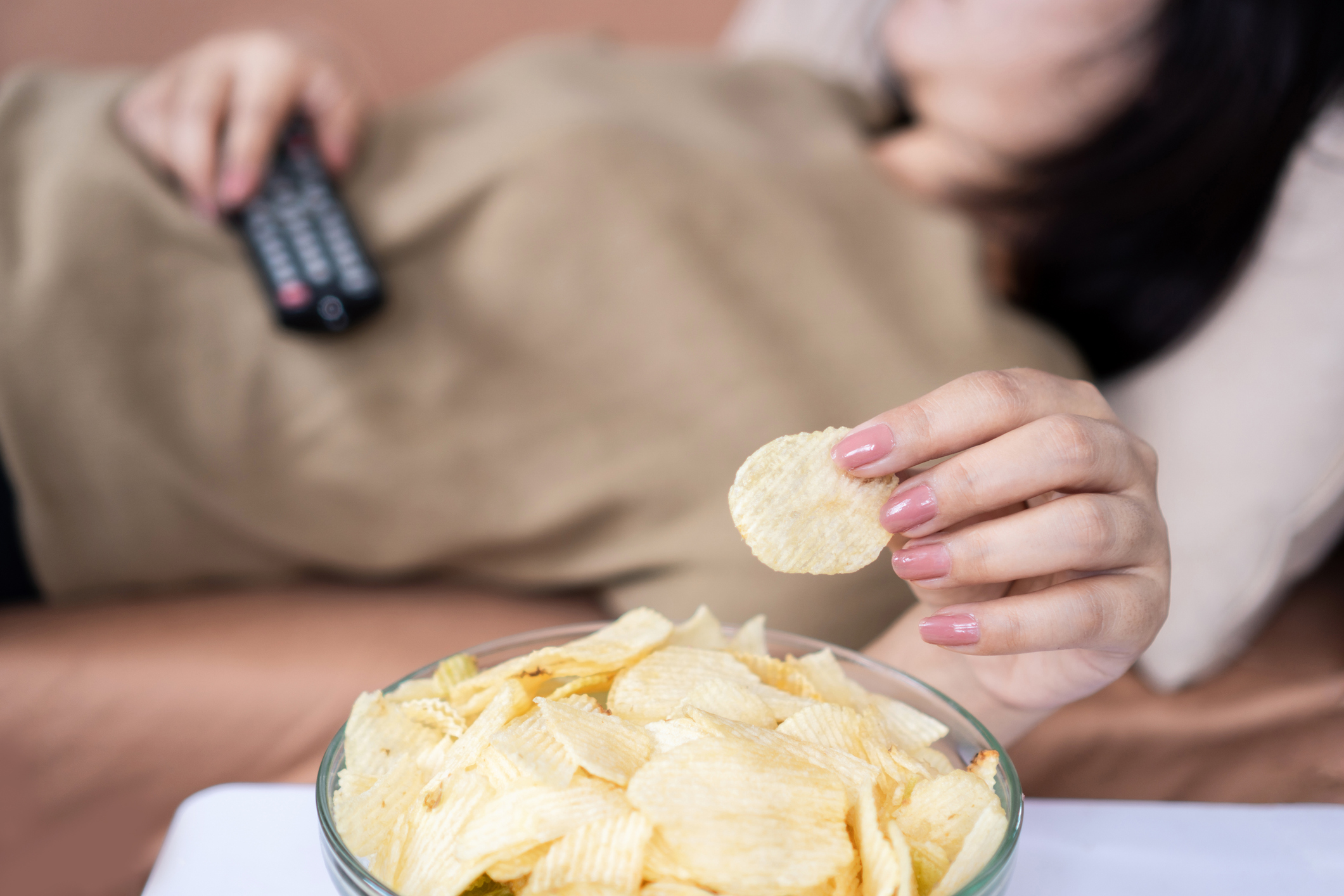

We’ve all done it. Life gets stressful, and we reach for the bag of chips to comfort us.
It’s so common a behavior that it has a name: stress eating.
No surprise there, right? You’re stressed, and that ice cream is just so comforting, and you deserve those guilty pleasures, right? But you don’t deserve the detrimental effects of stress eating…
Overeating junk food can lead to obesity. And obesity-related conditions include heart disease, stroke, type 2 diabetes, and cancer, as well as arthritis, gout, breathing and sleeping problems, and asthma.
You may not be able to stop stress eating tomorrow. But a recent study may have found a rather pleasant way for you to make all that fat you’re consuming less harmful.
Flavonoids to the rescue
“We know that when people are stressed, they tend to gravitate towards high-fat foods. We have previously shown that fatty food can impair the body’s vascular recovery from stress. In this study, we wanted to see if adding a high-flavanol food to the fatty meal would alleviate the negative impact of stress in the body,” says Dr Catarina Rendeiro, Assistant Professor in Nutritional Sciences at the University of Birmingham, and the study’s lead author.
In other words, they set out to fight bad nutrition with powerful nutrients to dial back the harmful effects.
Pretty exciting, right? But does it work…
Flavanol-rich drinks protect vascular function
The researchers took a group of healthy young adults and fed them a high-fat breakfast: two butter croissants with 10 grams of salted butter, a slice of cheddar cheese and 250ml of whole milk.
Half of them had a high-flavanol cocoa or a low-flavanol cocoa drink with their breakfast.
After breakfast, both groups completed a mental math test which increased in speed for eight minutes. During the test, their forearm blood flow and cardiovascular activity were measured, along with oxygenation of their pre-frontal cortex.
Importantly, the researchers used brachial flow-mediated dilation (FMD) as a measurement of vascular activity. FMD is known to be a good predictor of the risk for future heart disease.
Those who drank the low-flavanol drink saw a reduction of 1.29% FMD, while those who drank the high-flavanol cocoa had no decline at all in vascular function.
Dr Catarina Rendeiro, Assistant Professor in Nutritional Sciences at the University of Birmingham and lead author of the study, explains what this means:
“This research shows that drinking or eating a food high in flavanols can be used as a strategy to mitigate some of the impact of poorer food choices on the vascular system. This can help us make more informed decisions about what we eat and drink during stressful periods,” says Dr. Rendeiro.
Add flavanols to your diet
Now, this isn’t a free license to go crazy eating chips and ice cream. But if you do, you may want to add some flavanols.
When shopping, look for minimally processed cocoa powder. And if hot chocolate isn’t something you enjoy, you can get a high dose of flavanols from green or black tea.
You can get the daily recommended intake of flavanols of 400-600 mg/day by drinking two cups of black or green tea.
Other foods that are high in flavanols include:
- Onions
- Kale
- Peaches
- Berries
- Tomatoes
- Broccoli
Even red wine and chocolate are flavanol-rich! Just consume them in moderation and you’ll be fine.
Sources:
Cocoa or green tea could protect you from the negative effects of fatty foods during mental stress – study — Eureka Alert
Cocoa flavanols rescue stress-induced declines in endothelial function after a high-fat meal, but do not affect cerebral oxygenation during stress in young, healthy adults —Food & Function

